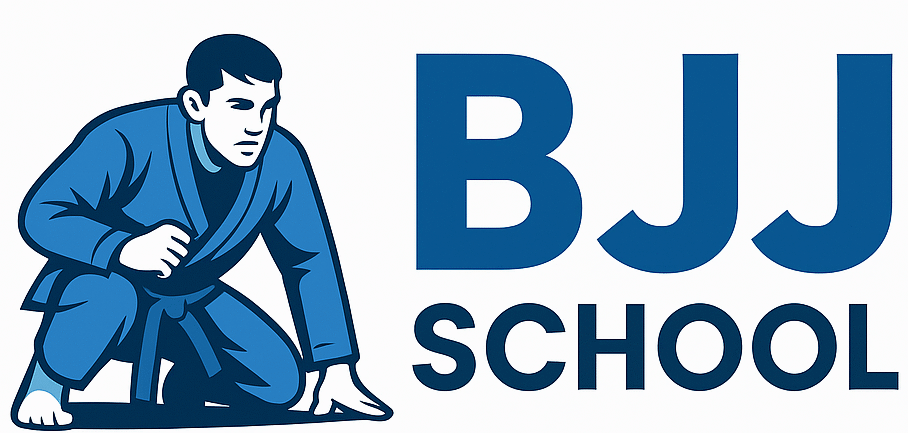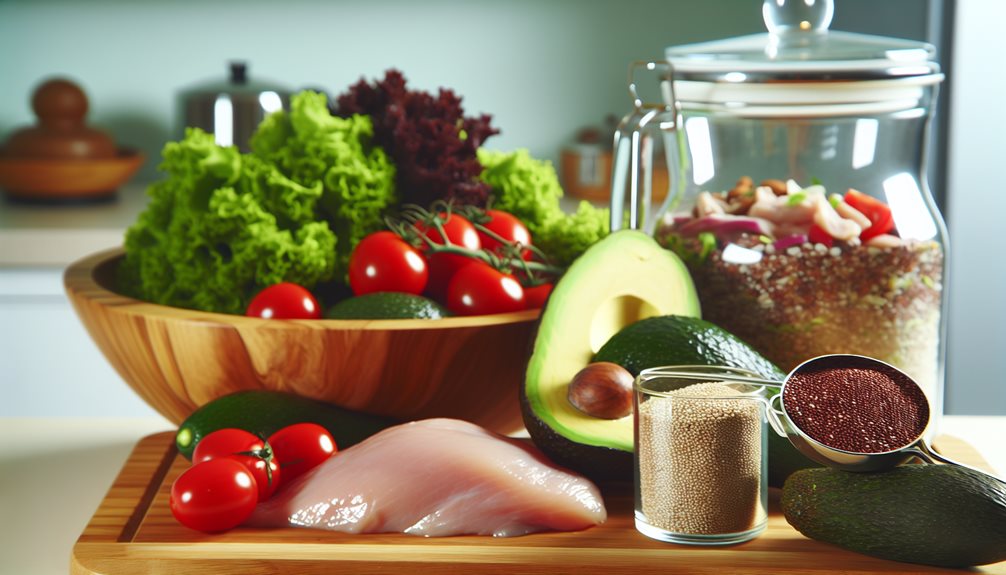Brazilian Jiu-Jitsu practitioners face unique nutritional challenges that directly impact performance on the mat. The physical demands of BJJ training—combining strength, endurance, and technical skill—require targeted nutrition strategies beyond generic fitness advice. Research indicates that proper macronutrient timing, hydration protocols, and recovery nutrition greatly influence both training capacity and competition outcomes. Many athletes underestimate how their dietary choices affect energy levels during intense rolling sessions. Understanding the nutritional framework specific to grappling sports reveals the potential for considerable performance gains.
Nutritional Demands Specific to BJJ Training
Because Brazilian Jiu-Jitsu combines high-intensity bursts with prolonged exertion, practitioners face unique nutritional challenges compared to other combat sports. The glycolytic system rapidly depletes glycogen stores during training, necessitating strategic carbohydrate timing and quantity.
BJJ’s joint-intensive nature demands sufficient protein intake (1.6-2.0g/kg bodyweight) for tissue repair and injury prevention. Micronutrients, particularly magnesium, calcium, and vitamin D, support recovery and neuromuscular function.
Meal variety becomes essential for athletes training 4+ times weekly, as repetitive diets often lead to nutritional gaps.
A periodized nutrition approach—adjusting macronutrient ratios based on training intensity—optimizes performance while supporting the immune system during high-volume training blocks.
Macronutrient Breakdown for Optimal Performance
The macronutrient requirements for BJJ athletes stem directly from the metabolic demands highlighted previously.
Most practitioners benefit from a carbohydrate intake of 4-6g per kilogram of bodyweight daily, focusing on complex carbohydrates that provide sustained energy sources during extended training sessions.
Protein requirements typically range from 1.6-2.2g/kg to support muscle recovery and maintenance, while fat intake should comprise 20-30% of total calories to support hormonal function and recovery.
These macronutrient ratios should be adjusted based on training intensity, competition proximity, and individual metabolic differences.
Performance testing can help optimize these parameters for each athlete’s specific physiological response.
Pre-Training Meal Strategies for Energy and Focus
Strategic timing and composition of pre-training meals can greatly impact BJJ performance through glycogen availability, cognitive function, and gastric comfort during training.
Ideal pre-training nutrition typically includes moderate-to-high carbohydrates consumed 2-3 hours before training to maximize glycogen stores without causing digestive discomfort.
For athletes training within 60 minutes, easily digestible pre-training snacks like banana with honey or rice cakes with jam serve as effective energy boosters.
Liquid carbohydrates may benefit those prone to gastrointestinal distress. A small protein addition (10-15g) helps mitigate muscle breakdown without slowing digestion considerably.
Hydration status remains equally critical for maintaining cognitive acuity during technical training sessions.
Post-Training Recovery Nutrition
Effective recovery begins immediately after rolling sessions end, when muscle glycogen resynthesis rates peak and tissue repair processes accelerate.
Practitioners should consume a 3:1 carbohydrate-to-protein ratio within 30 minutes post-training to optimize this window.
Recovery foods should emphasize fast-absorbing carbohydrates paired with high-quality protein sources. Options include whey protein with fruit, chocolate milk, or rice with lean meat.
Post workout hydration demands replacing approximately 150% of fluid loss, with electrolyte replenishment critical for those training in gi.
Strategic nutrient timing post-BJJ accelerates recovery, reduces soreness, and prepares the body for subsequent training sessions.
Hydration Protocols for Grapplers
Proper hydration remains perhaps the most overlooked performance factor among Brazilian Jiu-Jitsu practitioners, with research indicating that even mild dehydration (2% bodyweight loss) can reduce strength by up to 10% and greatly impair cognitive function during training.
Effective hydration protocols require strategic timing: 500-600ml of fluid 2-3 hours pre-training, 200-300ml every 15-20 minutes during sessions, and systematic post-training rehydration based on weight lost.
Ideal hydration sources include water supplemented with electrolyte-rich beverages containing sodium, potassium, and magnesium to maintain electrolyte balance during intense rolling sessions, particularly in gi training where sweat loss accelerates considerably.
Weight Management Approaches for Competition
Weight management represents one of the most challenging aspects of BJJ competition preparation, with many practitioners following suboptimal approaches that compromise performance.
Evidence suggests implementing gradual weight loss strategies beginning 8-12 weeks before competition yields superior results compared to rapid weight cutting.
Athletes should establish a caloric deficit of 300-500 calories daily while maintaining protein intake at 1.6-2.2g/kg of bodyweight.
Competition readiness requires strategic carbohydrate manipulation rather than complete elimination.
Water loading followed by gradual reduction can optimize final weigh-ins without dehydration’s performance penalties.
Monitoring body composition rather than scale weight provides more meaningful metrics for competitive grapplers seeking performance optimization within their chosen weight class.
Supplements Worth Considering for BJJ Practitioners
While mainstream supplement marketing targets bodybuilders and powerlifters, BJJ practitioners have unique physiological demands requiring specific nutritional support. Evidence suggests prioritizing supplements that enhance recovery, endurance, and joint health.
Protein powders facilitate post-training muscle repair, while creatine monohydrate improves high-intensity performance during scrambles and takedowns. Omega three fatty acids reduce inflammation in stressed joints. Branched chain amino acids support recovery between training sessions.
Multivitamin supplements address micronutrient gaps, particularly vitamin D for immune function. Electrolyte balance becomes critical during intensive training.
Some practitioners report benefits from adaptogenic herbs, specialized pre-workout blends, and recovery drinks containing tart cherry extract.
Meal Timing and Frequency for Training Days
Strategic timing of nutrient intake greatly impacts BJJ performance, recovery rates, and energy availability throughout training sessions. Practitioners should consume a carbohydrate-protein meal 2-3 hours before training, allowing for complete digestion while maintaining glucose availability.
Post-training meal timing becomes critical within the 30-60 minute anabolic window, emphasizing a 3:1 carbohydrate-to-protein ratio to replenish glycogen and initiate muscle repair.
On multiple-session days, smaller, frequent meals maintaining 2-3 hour intervals optimize nutrient timing without digestive discomfort during training.
Morning practitioners should prioritize easily digestible carbohydrates upon waking to reverse catabolic states from overnight fasting.
Nutrition Plans for Tournament Preparation
Tournament preparation demands a markedly different nutritional approach than regular training periods, particularly during the final 4-8 weeks before competition.
Athletes should gradually increase protein intake to 1.8-2.2g/kg bodyweight while maintaining sufficient carbohydrates for glycogen replenishment. Periodized carbohydrate loading should begin 3-4 days pre-tournament.
Tournament day strategies include consuming easily digestible meals 3-4 hours before competition, followed by carbohydrate-rich snacks at 60-minute intervals.
Hydration protocols should incorporate electrolytes to prevent performance decline.
Mental preparation techniques benefit from omega-3 supplementation and magnesium-rich foods, which support cognitive function and stress management during competitive phases.
Balancing BJJ Nutrition With Busy Lifestyles
The practical application of nutritional knowledge represents one of the greatest challenges for BJJ practitioners who balance training with professional and personal responsibilities.
Effective time management through weekly meal prep sessions can reduce daily decision fatigue. Strategic grocery shopping with pre-planned lists guarantees nutritional needs remain met despite hectic schedules.
Quick recipes utilizing single-pan methods or slow cookers facilitate post-training nutrition without extensive preparation. Portable healthy snacks and energy boosters like nuts, fruit, and protein bars maintain energy levels between training sessions.
For unavoidable scenarios, practitioners should master family meals with modular components and navigate eating out by pre-selecting ideal menu options.

